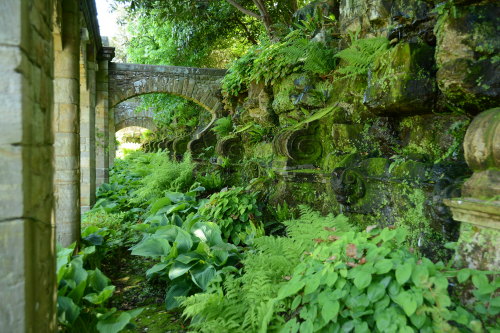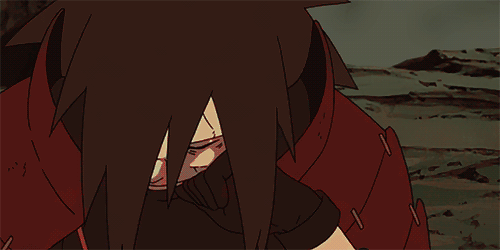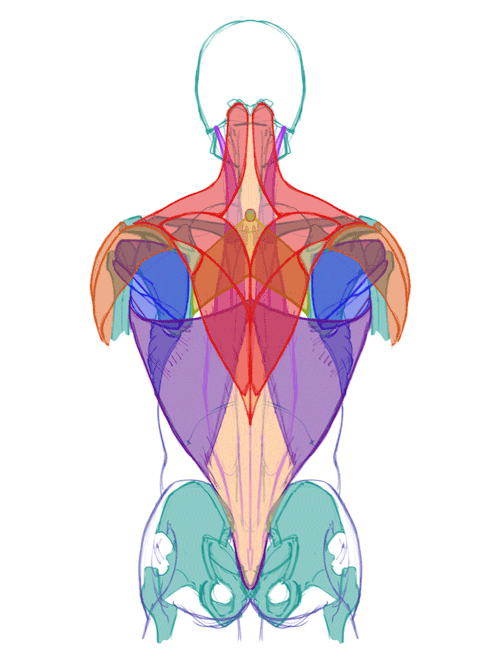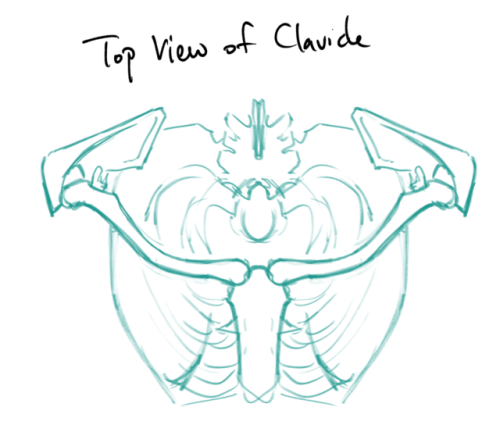Friends Or Not They’re Still Trashes



friends or not they’re still trashes
More Posts from Abgrundsgott and Others

Julian disapproves what you did today.

smart looks.


Photography by Kev Moon


"Philtatos," Achilles replied, sharply. Most beloved.”

huh …… i failed



Back muscles!
SKELETAL LANDMARKS

shoulder blades: most of the upper back muscles attach to them directly, placement is affected by the arms. They can get obscured on very muscular backs, but most people these are the most dominant features!
7th cervical vertebra: neck bone that sticks out in most people, it sits in the center of that diamond shaped tendon in the middle of the trapezius
Also, obviously always keep the general shape of the ribcage and spine in mind, it was too much of a pain to draw them all in lol.
BACK MUSCLES

Erector Spinae: make the column-like structures around the spine, they extend all the way up to the neck, but you really only see the bottom part.
Latissimus Dorsi: are very thin, so most of the time you only see the structures underneath (such as the erector spinae). But when flexed, (for example, when climbing), you can see here on Jimmy Webb’s back that swooping curve it makes under the armpits.

The lats are also responsible for most of a person’s upper body strength and are the “V” shaped part of the back. For example, it’s how Bruce Lee was so strong despite being a small guy. Just look at those wings, man.


Infraspinatus, Teres Minor, and Teres Major: sit on the shoulder blade itself, and connects it to the top of the arm bone. These are responsible for a lot of the crazy shapes you see in bodybuilders’ backs.
Underneath them is the serratus anterior, which technically isn’t a back muscle but sits on the side of the ribs. These form that zig-zag pattern on the ribs that makes people look super ripped when visible with the external obliques, both wrapping around the sides of the torso. They’re not technically back muscles but fill out the silhouette, so it’s good to keep them in mind.
the glutes/butt muscles… they go farther up the back than one might assume and they, along with the pelvis, do affect the surface appearance of the lower back.

Rhomboid: simple shape, attaches from the inner edge of the shoulder blades to the middle of the spine at the 7th cervical vetebra to about the 4th or 5th thoracic vetebra. It does not overlap with the latissimus dorsi

Trapezius: divided roughly in the top, middle, and bottom sections. The top is quite thick and cylindrical and makes the sloping shape from the neck to the shoulders.
The bottom part is very thin; like the latissimus dorsi, the forms underneath it are visible when relaxed, making the rhomboid visible if it is flexed and the traps are not. Also not where the bottom part’s tendons attach to the shoulder blades; it outlines the curve of the shoulder blades even in people who are covered in brains muscles.
When fully flexed, it doesn’t taper into a point, but makes a small “w” shape at the bottom.
The 7th cervical vertebra sits at the center of the diamond-shaped tendons between the first and second sections of the trapezius. This part appears recessed in very muscular people.

Deltoid: not really a back muscle, but they overlap with the Infraspinatus and insert into the upper ridge of the shoulder blades, so it’s good to see how they interact with the others.

Ah, now for an example, featuring Thor himself. Note the curve where the traps meet the shoulder blades, the diamond-shaped tendon, and the rough “w” shaped contour of the lower back. Also note the two dimples, which is formed by the pelvis bones. They tend to be more prominent in women, although they are found in both men and women.
Try to find the back muscles on other people yourself, and then GET DRAWING

(PS, Generally it’s best to be able to simplify the forms instead of trying to render straight away - that’s how you know you really internalized the anatomy! I… honestly still don’t understand the back enough to do that yet, hence the lack of examples, unlike with the forearms post. But nonetheless, I hope that this is still useful as a general reference. I know it’s helped me at least remember what the different parts are, even if I don’t yet have a grasp of how they interact in motion!)

Austrian National Library
Roman naming conventions
During Roman Empire, the Romans employed a system of nomenclature, consisting of a combination of personal and family names. It was called Tria Nomina (lit. three names), divided in: praenomen, the name who are normally called with; nomen, which indicated the bloodline of the family or the clan they were from; and cognomen, like surname, which indicated the household such as the modern usage. At times, they would use a third surname, called agnomen, for the ones who were adopted by the new family, but it hadn't a formal use. Between men and women, there were few differences: women usually had father's or husband's praenomen instead of one for theirselves.



Here is Ludwig von Schlegel. I choose this surname because I made this Saint Seiya original character in the meanwhile I was studying for German Philology exam.
He’s a specter from the two goddess sisters Makarie and Melinoë, both daughters of Hades (in the myth).
He was born in North Germany from a Greek father and a German mother, and trained in Greece to become silver saint - his name was Vulpecula. But as he became silver saint, some Athena’s enemies, as revenge, killed his parents - Athena showed no interest in that situation. So, Ludwig started left slowly her side ‘cause of the pain he suffered and the disinterest for his mourning and miasma he was living.
So, he started to live alone near Eleusis, where in the cave where Nameless Gods statues stood, met two old sisters who he chatted for a while with. They talked about mercy, respect and during the months Ludwig lived there, always visited them. The two old women introduced Hades’ daughters as mercy and respectable goddess, towards which Ludwig got more and more close.
At the end, he would left Athena’s side as silver saint to rebirth as terrestrial mercy star on the side of the two old women, whom will reveal as the two goddess self.
-
 mierstaer liked this · 1 month ago
mierstaer liked this · 1 month ago -
 bestefani liked this · 8 months ago
bestefani liked this · 8 months ago -
 ineedluvplzgiveme liked this · 11 months ago
ineedluvplzgiveme liked this · 11 months ago -
 7kthoughts liked this · 1 year ago
7kthoughts liked this · 1 year ago -
 wickedodd12345 liked this · 1 year ago
wickedodd12345 liked this · 1 year ago -
 sapor-a liked this · 1 year ago
sapor-a liked this · 1 year ago -
 morgiishere liked this · 1 year ago
morgiishere liked this · 1 year ago -
 lonelyinorr liked this · 1 year ago
lonelyinorr liked this · 1 year ago -
 gloriousgardenlove reblogged this · 2 years ago
gloriousgardenlove reblogged this · 2 years ago -
 gloriousgardenlove liked this · 2 years ago
gloriousgardenlove liked this · 2 years ago -
 thebadappleofeva liked this · 2 years ago
thebadappleofeva liked this · 2 years ago -
 hawaiianholidayy liked this · 2 years ago
hawaiianholidayy liked this · 2 years ago -
 marsinthedark liked this · 2 years ago
marsinthedark liked this · 2 years ago -
 cool-fan-gurl37 reblogged this · 2 years ago
cool-fan-gurl37 reblogged this · 2 years ago -
 cool-fan-gurl37 liked this · 2 years ago
cool-fan-gurl37 liked this · 2 years ago -
 maryjane-31 liked this · 2 years ago
maryjane-31 liked this · 2 years ago -
 citron250 liked this · 2 years ago
citron250 liked this · 2 years ago -
 nightlight-stardust-and-rain liked this · 3 years ago
nightlight-stardust-and-rain liked this · 3 years ago -
 affogonellamarmellata reblogged this · 3 years ago
affogonellamarmellata reblogged this · 3 years ago -
 affogonellamarmellata liked this · 3 years ago
affogonellamarmellata liked this · 3 years ago -
 motleyreviewsbackup liked this · 3 years ago
motleyreviewsbackup liked this · 3 years ago -
 zeuwuse liked this · 3 years ago
zeuwuse liked this · 3 years ago -
 maria-the-actress liked this · 3 years ago
maria-the-actress liked this · 3 years ago -
 deesse-des-barbares liked this · 3 years ago
deesse-des-barbares liked this · 3 years ago -
 lobotomycase reblogged this · 3 years ago
lobotomycase reblogged this · 3 years ago -
 michellehylian reblogged this · 3 years ago
michellehylian reblogged this · 3 years ago -
 iykujtrgrfed reblogged this · 3 years ago
iykujtrgrfed reblogged this · 3 years ago -
 iykujtrgrfed liked this · 3 years ago
iykujtrgrfed liked this · 3 years ago -
 juuuust-meeee reblogged this · 4 years ago
juuuust-meeee reblogged this · 4 years ago -
 juuuust-meeee liked this · 4 years ago
juuuust-meeee liked this · 4 years ago -
 yakultdepollo-rose liked this · 4 years ago
yakultdepollo-rose liked this · 4 years ago -
 alyrae13 liked this · 4 years ago
alyrae13 liked this · 4 years ago -
 orchidstar liked this · 4 years ago
orchidstar liked this · 4 years ago -
 dommissiri liked this · 4 years ago
dommissiri liked this · 4 years ago -
 knocblema liked this · 4 years ago
knocblema liked this · 4 years ago -
 anibelisalasdias liked this · 4 years ago
anibelisalasdias liked this · 4 years ago -
 koali-kajipo liked this · 4 years ago
koali-kajipo liked this · 4 years ago -
 arnoediad reblogged this · 4 years ago
arnoediad reblogged this · 4 years ago -
 quixoticusurper liked this · 4 years ago
quixoticusurper liked this · 4 years ago -
 quixoticusurper reblogged this · 4 years ago
quixoticusurper reblogged this · 4 years ago -
 terriskill liked this · 4 years ago
terriskill liked this · 4 years ago -
 abgrundsgott reblogged this · 4 years ago
abgrundsgott reblogged this · 4 years ago -
 abgrundsgott liked this · 4 years ago
abgrundsgott liked this · 4 years ago -
 legendaryphoenixwarrior liked this · 4 years ago
legendaryphoenixwarrior liked this · 4 years ago -
 penpencilandpoison liked this · 4 years ago
penpencilandpoison liked this · 4 years ago -
 duardafranca liked this · 4 years ago
duardafranca liked this · 4 years ago -
 aly-arts liked this · 4 years ago
aly-arts liked this · 4 years ago -
 sahelstudies liked this · 4 years ago
sahelstudies liked this · 4 years ago -
 ilovelydahliai liked this · 4 years ago
ilovelydahliai liked this · 4 years ago
